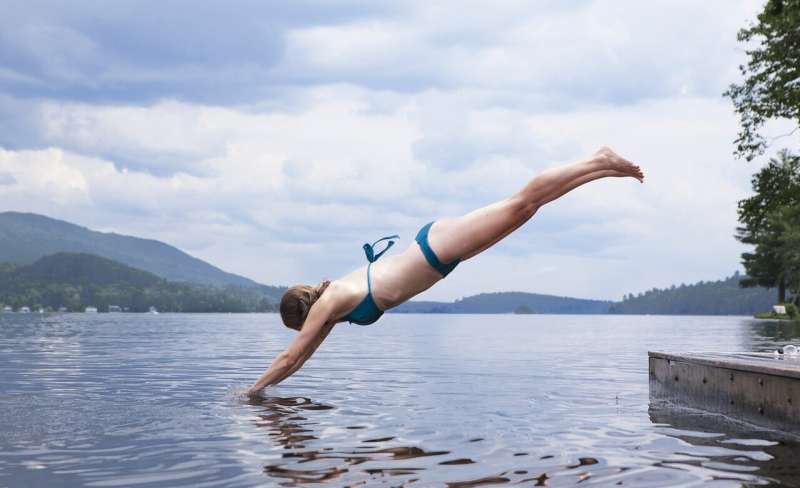#A little-known hazard linked to open water swimming

Table of Contents
“A little-known hazard linked to open water swimming”

Fluid on the lungs (or pulmonary edema, as it’s formally known) is a relatively little-known hazard associated with open water swimming, warn doctors in the journal BMJ Case Reports after treating a woman with the condition.
Older age, swimming long distances, cold water, and female sex are among the risk factors, as are high blood pressure and pre-existing heart disease. But it frequently occurs in those who are otherwise fit and healthy, highlight the authors.
Open water swimming has become very popular, with more than 3 million enthusiasts in England in 2021 alone. But mounting evidence points to a link between the activity and a condition called swimming-induced pulmonary edema, or SIPE for short.
First reported in 1989, SIPE leaves swimmers struggling to draw breath and depletes their blood of vital oxygen. It affects an estimated 1-2% of open water swimmers, but cases are likely to be underreported, say the authors.
The woman in question was in her 50s and a keen competitive long distance swimmer and triathlete.
Otherwise fit and well, she was struggling to breathe and coughing up blood after taking part in an open water swimming event at night in water temperatures of around 17°C while wearing a wetsuit. Her symptoms started after swimming 300 meters.
She had no medical history of note, but had experienced breathing difficulties during an open water swim a fortnight earlier, which had forced her to abandon the event and left her feeling breathless for some days afterwards.
On arrival at hospital, her heartbeat was rapid, and a chest X-ray revealed pulmonary edema. Further scans revealed that fluid had infiltrated the heart muscle, a sign of strain known as myocardial edema. But she had no structural heart disease.
Her symptoms settled within 2 hours of arrival at hospital. After careful monitoring, she was discharged the following morning.
It’s not clear exactly what causes SIPE. But it likely involves increases in arterial pressure in the lungs secondary to centralization of blood volume in a cold environment, combined with an exaggerated constriction of these blood vessels in response to the cold and increased blood flow during physical exertion.
But recurrence is common and has been reported in 13-22 percent of scuba divers and swimmers, suggesting a predisposition to the condition, say the authors. They advise swimming at a slower pace, accompanied, in warmer water, without a tight-fitting wetsuit, and avoidance of non-steroidal anti-inflammatories, such as ibuprofen, to minimize the risk.
For those experiencing symptoms for the first time, the authors recommend stopping swimming and getting out of the water right away, then sitting upright, and calling for medical assistance if required.
This is just one case, emphasize the authors, whose aim in reporting it is to raise awareness among doctors and swimmers of a relatively little known condition.
“The UK Diving Medical Committee has published guidance for divers. However, at present, there are no formal national medical guidelines concerning the recognition and management of this complex condition,” they note.
Myocardial oedema in the setting of immersion pulmonary oedema—Cause or effect?, BMJ Case Reports (2023). DOI: 10.1136/bcr-2022-251274
Citation:
Fluid on the lungs: A little-known hazard linked to open water swimming (2023, January 9)
retrieved 9 January 2023
from https://medicalxpress.com/news/2023-01-fluid-lungs-little-known-hazard-linked.html
This document is subject to copyright. Apart from any fair dealing for the purpose of private study or research, no
part may be reproduced without the written permission. The content is provided for information purposes only.
If you liked the article, do not forget to share it with your friends. Follow us on Google News too, click on the star and choose us from your favorites.
For forums sites go to Forum.BuradaBiliyorum.Com
If you want to read more Like this articles, you can visit our Science category.



